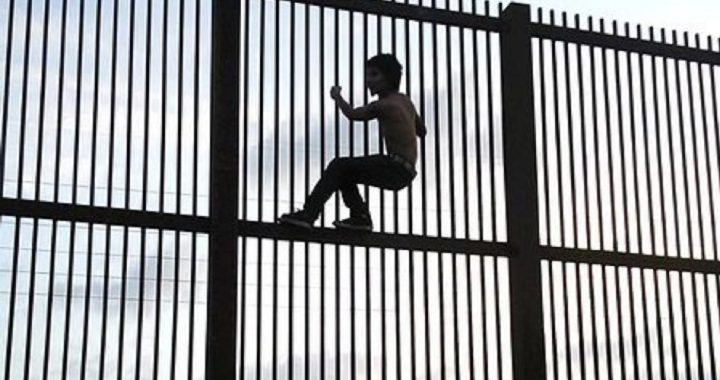
There are more than a few good reasons why “the comprehensive immigration reform” plan advocated by the Senate’s “Gang of Eight” has caused a whirlwind of controversy. To these we can now add one more.
On Tuesday, June 18, by a 54-39 vote, the Senate decided that it would not construct the 700-mile border fence that Congress authorized back in 2006.
In so doing, it succeeded in further vindicating the concerns of the millions of Americans who remain convinced that so-called “comprehensive immigration reform” is just amnesty by another name.
Republican Senator Marco Rubio, a high-profile member of the Gang of Eight, has insisted that there will be no “pathway to citizenship” for the more than 11 million illegal immigrants currently residing in America unless and until America’s southern border is secured. He has even gone so far as to try to persuade the rank and file of his own party that his plan is “conservative.” However, at the same time, Rubio told Hispanic audiences that the legalization of illegal immigrants would not be contingent upon the border’s being secured.
Rubio has since tried to prove that he didn’t contradict himself, but for many, particularly those within his own party, this latest decision on the part of the Senate puts his credibility here into question.
Republican Senator John Thune of South Dakota proposed the border fence amendment. Thune’s amendment stipulated two conditions that 54 of his colleagues, and five members of his own party, including Marco Rubio and John McCain, found intolerable. The first called for the erection of a minimum of 350 miles of double-tier fencing before one illegal immigrant could receive legal status. The second demanded that 700 miles of such fencing would need to be built before any illegal immigrants could receive full citizenship.
Rubio justified his decision to reject Thune’s amendment on the grounds that it lacked specificity. He said that while he supports a border fence, Thune’s proposal doesn’t provide “a specific border plan.” Rubio added that his own immigration bill already contains “significant” border security measures. From this point onward, he says that he plans to work with his fellow Republicans on ways by which to improve upon them.
Arizona Senator John McCain, a Republican who is part of the Gang of Eight and who, while running for reelection, featured in a campaign ad in which he demanded of the government that it “build the dang fence,” voted against Thune’s amendment. McCain stated: “I think we should leave that [the border fence] to the best judgment of the Border Patrol.” He also said: “Fencing is important.” But “surveillance is more important.”
Doubts concerning Congress’ commitment to border security continue to loom large.
Last week, appearing on Sean Hannity’s television program, conservative columnist Ann Coulter registered a vote of no confidence on the topic of the Gang of Eight’s assurances of border security.
Calling the immigration bill “amnesty,” Coulter observed that “step one is legalization. Everything after that, all the triggers to citizenship, are phony triggers. There doesn’t have to be a fence, there doesn’t have to be E-Verify. There just has to be Department of Homeland Security assuring us that they have a plan.”
Before the Senate shot down Thune’s border fence amendment, it rejected another amendment proposed the previous week by Republican Senator Minority Whip John Cornyn from Texas.
The Cornyn amendment included “triggers” for both legal status and citizenship that are far more demanding than those included in the current immigration bill. In addition to a biometric entry/exit system at all sea, land, and air ports to the United States, the Cornyn amendment also required all American employers to implement E-Verify; comprehensive “situational awareness” of our southern border; and “operational control,” i.e. the annual return of 90 percent of immigrants who attempt to cross illegally any and every section of the southern border.
Cornyn asserted that his amendment would “guarantee the results that Washington has long promised but never delivered” on.
Yet it would also guarantee that no one could set out on a pathway to citizenship until all of these border security measures were met.
This, though, is unacceptable to most Democrats and to those Republicans, such as Rubio, McCain, and South Carolina Senator Lindsey Graham, who claim that their colleagues’ amendment is prohibitively costly, a “poison pill.”
It is true that the current immigration plan includes border security measures, but it does not require that they are completed before legal status and eventual citizenship can be granted to illegal immigrants.
Cornyn wasn’t the only Republican senator to have had a rough week. Iowa Republican Senator Chuck Grassley also proposed an amendment that failed to elicit the endorsements from his colleagues that it needed to pass.
The Grassley amendment called for the Department of Homeland Security to establish “effective control” of the border for six months before illegal immigrants could be granted legal status.
It was struck down by a vote of 57 to 43. Every member of the Gang of Eight voted against it. Grassley’s amendment was then “tabled”: It will never be discussed again. He remarked that while “people support reform,” they support it only “if we have border security first.”
Thune, Cornyn, and Grassley maintain that their amendments are necessary in order to convince their Republican colleagues — and the American people — that the government is serious about enforcing the border.
According to the Gang of Eight’s bill, illegal immigrants can achieve legal status in as little as six months as long as Homeland Security designs and submits a plan for border security, including more fencing. One hundred percent of the southern border must be under surveillance, and 90 percent of those trying to get into the country illegally must be turned back. If, though, Homeland Security does not attain these objectives within five years, then a border commission, comprised of the governors of California, Arizona, New Mexico, and Texas, will be assembled to do the job.
Formerly illegal immigrants already on the pathway to citizenship will not be sidetracked.
In 2006, Congress — including, interestingly enough, Illinois Senator Barack Obama — voted in favor of building a double-tiered border fence. One year later, however, Congress changed all of this by granting the federal government significantly more discretion to erect or not whatever barriers it deemed necessary.
To date, very little of the fence has actually been built.



